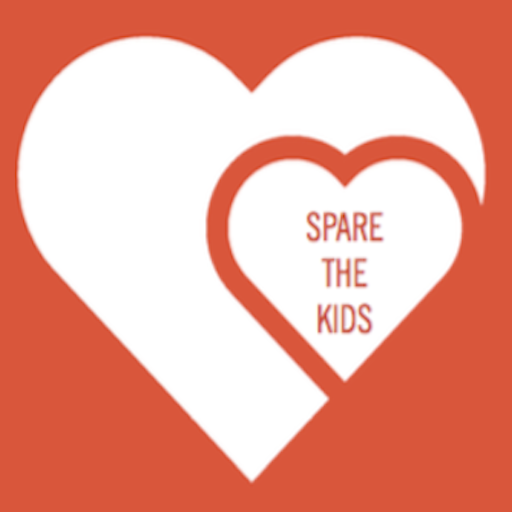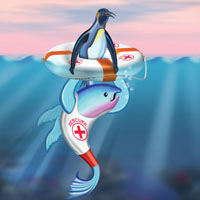By Dr. Stacey Patton
Last week I gave a keynote speech at the Supervised Visitation Network’s Regional Conference in Seattle. My talk focused on the stages of grief that foster children move through when they are separated from their families of origin and how visitation professionals can appropriately recognize and respond to children’s behaviors and the emotions behind the behaviors. Offstage I had a long conversation with a fellow adoptee who leaned into my ear and asked three important related questions:
“Why do you think so many of us grow up and become enablers?”
“Why do we have this need to rescue people in our lives?”
“Why is it so hard for foster kids and kids who’ve been adopted to succeed in intimate relationships as adults?”
I reacted to her questions first with a smile. And then, I dropped my eyes to my lap and sat silently for a few moments, sinking into an abyss of uncalm waters inside me.
Her questions made me feel as if she were penetrating through my tough-as-nails, I-will-never-again-be-anybody’s-victim-or-dependent-on-anybody-for-anything exterior that I project when walking through the world. Though she was genuinely seeking some understanding for herself and the children she serves, I felt as if she had been reading all of my secret vulnerabilities.
Though her questions were painful, my fellow adoptee perhaps unknowingly provided me with an excellent opportunity to confront some truths and a chance to further free myself from the binds of my past.
So here are the answers I came up with . . .
Like everybody else, foster kids and adoptees long for acceptance, love and a sense of connection with others. But many of us are terrified of intimacy later on in life because we have experienced some form of abandonment in early childhood and because we’ve racked up so many losses on our journey through the child welfare system. Life in foster care is unstable and unpredictable. So many people come and go that it’s difficult to connect or trust others. We’re always anxiously waiting to be shuttled from one place to another, and bracing for relationships to end.
Unfortunately, many of us have learned that vulnerability and dependency on others is not a safe position for us. We grew up believing that we were unwanted, unlovable, abnormal, defective and unworthy. We wondered: if our biological parents don’t want us, if they can’t love us for whatever reason, then who will?
These negative feelings of self-worth got set during a foundational developmental period in our lives and make it difficult for us as adults to reveal ourselves to others or believe that anyone else can ever truly love us. And we are always prepped, sometimes even expecting others to leave us eventually. When it happens, sometimes we get depressed but we generally bounce back quickly because we remember that no other rejection can ever trump the severing of that first primal loss or rejection from our mothers.
Good friends have said that before they got to know me I came off as cold, detached, so together, always in control, and impenetrable. In many respects they were right, but little did they know that this behavior was a defense mechanism. Keeping distance from others was imperative for me to hide my sense of unworthiness and unaccepted truths about my abandonment and victimization. My unhealthy beliefs about myself, instilled in childhood, ruled my emotions, outlook on the world, and relationships with others. In my work with my foster brothers and sisters, fellow adoptees, and those who lost their parents during childhood, I have found that they too share similar challenges.
One of the most striking traits that many of us share in adulthood is our seemingly unconscious addiction to being enablers and rescuers. Why is that?
Now, I’m no shrink and I won’t attempt to give you some armchair psychobabble. I’m just speaking here from personal experience and my observations from my peers who navigate the world with these issues.
We may know it, or not, but most foster kids and adoptees often react to life as victims and we have a habit of putting people on pedestals, setting ourselves up in relationships where we unconsciously re-enact painful themes from our childhood and are ultimately left abandoned, betrayed or taken advantage of. We were not adequately nurtured during childhood. Some of us were abused or abandoned. And so we find ourselves rescuing other people because we wanted somebody to come rescue the little boy or the little girl that we were. And though we are physically grown, many of us have not exorcised the troubled inner child. We let the little boy’s or little girl’s insecurities, memories, trauma, and fears rule the adult.
Being a caretaker or helper makes us feel like we matter, that we are important and worthy to others. Our behaviors and actions towards others allow us to not accept that we were once child victims because we now have the power to fix things. By rescuing others we think it will make ourselves feel good and protect others from feeling bad. Ultimately we derive a false sense of being in control, which provides us sense of empowerment. But that feeling doesn’t last long because we find ourselves involved in relationships with friends, family members and lovers who are lifetime victims or dependents who have no idea how to be there for us.
I’ve often found myself sacrificing my needs and feelings, saying that they are irrelevant and that I don’t deserve to tell others what I want or need. As a rescuer, the only way that I think I can legitimately connect with others, feel valued, and meet their needs is through the back door of caretaking, serving and “fixing it.”
For too long I’ve believed that if I take care of others well enough and long enough, then I will be fulfilled. I will prove that I am worthy and lovable. If I take care of them long enough, then they will eventually take care of me too. It’s hard to admit that rescuing others is an unconscious addiction that sprang from my need to feel valued and to prevent others from walking out of my life. It’s even more difficult to accept that after all the time and energy spent trying to fix things for others that we can’t expect anything back from them and that they will most likely wind up leaving us because they are needy and don’t have the ability to care for themselves.
Rescuers are attracted to victims and dependents. The end result is that we wind up becoming serial victims who are always trying to make ourselves indispensable because we are afraid of being abandoned or alone.
Adoptees and foster kids sometimes falsely believe that our total value comes from how well we are able to please or do for others. We spent our childhoods trying to convince others that we were keepable. As adults, it may be difficult for us to see our worth beyond our services and what we can do for others. And so in our relationships we may unconsciously encourage dependency. We think: “They won’t leave us because they need us.”
Foster kids especially come from families where their needs go unacknowledged. And adoptees sometimes dwell on their unmet needs that the biological parents who relinquished them failed to provide. So it’s no surprise that they grow up to become adults who treat themselves with the same degree of negligence that they experienced as children and don’t give themselves permission to take care of themselves. We unconsciously foster dependency in others that becomes harmful to our rescuees’ development. The more we rescue others in our lives, the less self-responsibility our rescuees take for their own lives. For us, having a victim in our lives is essential for maintaining the illusion that we are needless, that we were never victims.
The woman who asked me the questions that sparked this reflection told me that she and other rescuers she knew always have at least one person in their lives that was troubled, sick, fragile, inept and dependent on them. Once those people eventually took responsibility for themselves, then the rescuers were abandoned and had to seek out new people and relationships to fulfill their emotional voids. And the cycle continued.
So what can people like us rescuers do to keep from becoming victims of our own good deeds? Here’s some things I’ve learned through some of my self-help readings:
- Continue to be loving, generous and kind. We can continue being helpful and supportive to others without being a rescuer. We must recognize that there is a difference being between helpful and rescuing.
- Act without expectations for reciprocation. Empower rather than disable. Encourage self-responsibility, rather than promote dependency.
- Remind yourself that others – friends, family members, lovers – can handle their own business.
- Remember that everyone has the right to make mistakes and learn through consequences.
- Trust that others have what it takes to see themselves through times of difficulty without you needing to “save” them.
- Do NOT help others in order to get validation or feel important. It only fosters dependency and ultimately leads to setting yourself up for victimization.
- Learn to set appropriate boundaries, nurture and set priorities for yourself. Stop obsessing, intervening and interfering in the lives of others in unhealthy ways. Stop taking responsibility for others instead of yourself.
Certainly, there are valuable lessons and useful tips here not just for adoptees, foster children and people who’ve experienced some form of abandonment. As we all journey through life we must become conscious of our emotions and behaviors as well as their origins so we can make changes, heal from pain, and re-claim our emotional and spiritual health.



Dr Patton,
Amen! You hit every single nail on the head. This article needs to be taught to everyone coming out of a cult, bad relationship, abusive home, etc. Of course it takes some of us years to process our journies and continue to work on these issues on a daily basis. But you put a platform out there for guidance.
Thank you again for using your gift and sharing it!
P.S. I like the 7 self-help ideas. 🙂
Dear Dr. Patton,
You are an amazing woman and have great insight as to “Why”…we rescue others. I am a lot older than you but consider myself to be an infant in my understanding of why I constandly tried to help others. You my dear lady, have become my teacher! I relish the education I am obtaining from reading your comments. I also suffered throughout my life with feelings of being unloved,unworthy,ugly,etc.
I do hold on to the thoughts of being kind to others but first I had to learn to make peace with myself.
Also, forgiveness had to enter my heart. Thank God…and it is through him,that I have finally arrived at this reasoning. Thank you again!